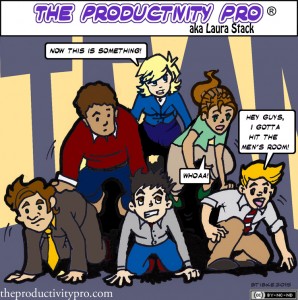
“One of the most sincere forms of respect is actually listening to what another has to say." – Bryant H. McGill, American self-improvement writer and speaker Effective teams are most often led by leaders who expect innovation and therefore encourage diverse viewpoints. (click to tweet) This is no secret, despite the fact that—as cynics will surely point out—we rarely practice the concept adequately, and I would agree. However, we also let pettiness, bureaucracy, groupthink, disengagement, laziness, and other failings hinder our creativity and slow us down. Business as usual runs down and crushes flexible creativity. When I think of respectful creativity, I think of Steve Jobs and Apple. Steve Jobs was no saint; he had his flaws, but that just makes his story all the more amazing. The … [Read more...]











